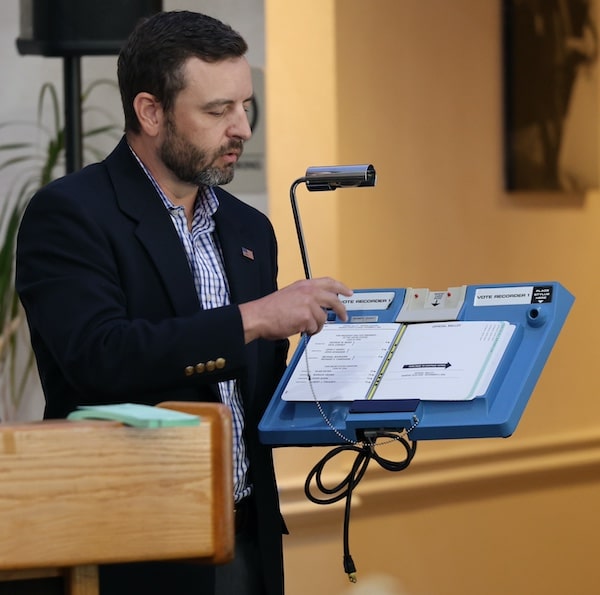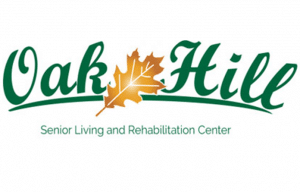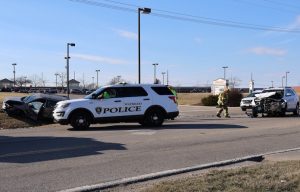Election seasons on horizon

Voters will soon be casting their ballots in the 2024 general election, with a local election coming up soon after in the spring.
Monroe County Clerk Jonathan McLean spoke with the Republic-Times to discuss some of the particulars of these coming elections.
One of the bigger points McLean noted was the early filing period for local elections. With candidate packets currently available for local positions, filing will take place from Nov. 12-18 rather than in early December for the April 2025 election.
McLean explained that the filing period was moved up in Illinois to allow the State Board of Elections more time to handle appeals, which haven’t been much of a problem locally but have come up elsewhere.
Regarding the general election on Nov. 5, McLean offered an overview of what voters can expect on the ballot.
The presidential election will have voters selecting between Republican Donald Trump and Democrat Kamala Harris as well as Robert F. Kennedy Jr. who remains on the ballot in Illinois.
Voters will also cast ballots for Illinois’ 12th congressional district between incumbent Republican Mike Bost and Democrat Brian Roberts.
Republican State Representative David Friess of the 115th district and Republican State Senator Terri Bryant of the 58th district will also be on the ballot.
At the county level, votes will also be cast for state’s attorney, coroner, circuit clerk and a county commissioner.
Three questions will also be featured on the Nov. 5 general election ballot, the first of which concerns whether or not a candidate appearing on an Illinois ballot should face civil penalties should they interfere or attempt to interfere with election workers’ official duties.
The second asks whether or not Illinois should create an additional 3 percent tax on income over $1 million, and the third concerns whether or not all insurance plans should provide for in vitro fertilization.
Regarding the spring election, Waterloo voters will be selecting aldermen as the seats of incumbents Matt Buettner in Ward I, Jim Trantham in Ward II, Kyle Buettner in Ward III and Russ Row in Ward IV are up for four-year terms. Ward III alderman Tina Charron’s seat is up for a two-year term.
For the Waterloo School Board, the seats of Neil Giffhorn, James Yaekel and John Caupert will be on the ballot. Voters will also decide if Nathan Mifflin will continue to hold a school board seat after he stepped in for Kim Ahne, who resigned recently.
For the Waterloo Park District Board, voters will be selecting someone to replace recently retired Shelby Mathes on top of voting on the positions of Gina Pfund, Michael Nolte and Keith Buettner.
In Columbia, Mayor Bob Hill and City Clerk Derek Reichert’s positions are on the April 2025 ballot as are the seats of aldermen Andrew Hitzemann in Ward I, Michael Lawlor in Ward II, Paul Khoury in Ward III and Mary Ellen Niemietz in Ward IV.
For Columbia School Board, the seats of Adam Hemken, Andrea Khoury, Greg Meyer and Tyson Search are all on the ballot.
Voters in Hecker and Valmeyer will also be deciding on mayoral and trustee seats.
In the lead-up to the coming elections, McLean and other county clerks have been active in the community in trying to educate about election integrity, assuaging any concerns voters might have.
McLean spoke about his expectations for the general and consolidated elections, noting the fall election will likely be quiet given little competition, though some concerns might be more prevalent in the spring.
“We probably will have some races where there’s some competition, and that’s when candidates start to question things more and raise concerns,” McLean said. “We are spending more time talking about election integrity and educating candidates and the general public about how we do things. I try to hit it head-on the minute I start to hear that somebody says something’s not right.”
As part of his efforts to communicate with the community about election integrity, McLean recently spoke with the Columbia Chamber of Commerce to discuss the history of voting in America and how the process works today.
McLean opened by describing the development of voting in the county, noting how concerns about paper voting led to lever machines.
“We voted on paper up until the early 1900s,” McLean said. “And in the early 1900s, there was a big movement in places like Chicago and New York. They were saying ‘We shouldn’t vote on paper anymore because the election officials are either tearing or marking ballots.’”
Technology later turned to the punch card system which was ultimately replaced with the current Scantron system following the issues with the 2000 general election in Florida.
McLean stressed how thoroughly the machines in Monroe County are tested in order to ensure they are correctly scanning each voter’s ballot.
“We test this machine extensively before we send it out,” McLean said. “We test it to make sure that it’s counting correctly.”
Regarding developments in voting technology, McLean pointed to the addition of poll pads which allow for a number of benefits, printing off a receipt for voters, syncing with the courthouse to provide live updates on when voters are checking in and also helping register voters.
He also mentioned a feature currently in the works wherein a voter could scan the bar code on their license or a voter ID card in order to more quickly check in and get in and out of the polling location.
“If you’re someone who comes in, you don’t have any ID, they gotta type in your name,” McLean said. “It takes them a little while to find you. If you have your bar code, though, we’re gonna have lanes where you can go right through.”
McLean further noted that, with these tech additions, voters are still casting their ballots on the scanned paper. Additional security measures are also taken, including ensuring that the machine’s internet access is secure.
He additionally mentioned how county clerks like him have taken to communicating with the public in order to address their concerns.
“County clerks, we’re trying to get out and talk more about our equipment and what we use and the processes that we have internally because we’ve kind of been caught off guard by all of these concerns of how the election equipment works,” McLean said.
One such concern for some is the process of voting by mail, though McLean spoke positively about this system as it allows people another oftentimes easier option to cast their ballot.
He fielded a handful of questions from those in attendance, one of which saw him explaining the distinction between election judges – who actually run the election process – and poll watchers.
“Poll watchers sat at the polling place and marked down who all came in and voted, because it was there job at about 4, 5 o’clock to get your list out and start calling everybody who hasn’t shown up to vote for your candidate,” McLean said. “Now poll watcher has sort of transformed into this election integrity role.”
McLean added how this shift has actually turned into something of an issue as election authorities have also had to handle a surge in poll watcher activity.
He further summarized his work and the need for integrity and transparency in the election process.
“Our candidates, they pour their heart and soul and money into their races, and we owe it to them to make sure that we’re transparent, that we’re giving them as much information as we can so they have confidence in the results one way or the other,” McLean said.
Anyone with questions about voter registration, filing for elected office, or other aspects of the voting process in Monroe County can contact the county clerk’s office at 618-939-8623 or visit mococlerk.com.






